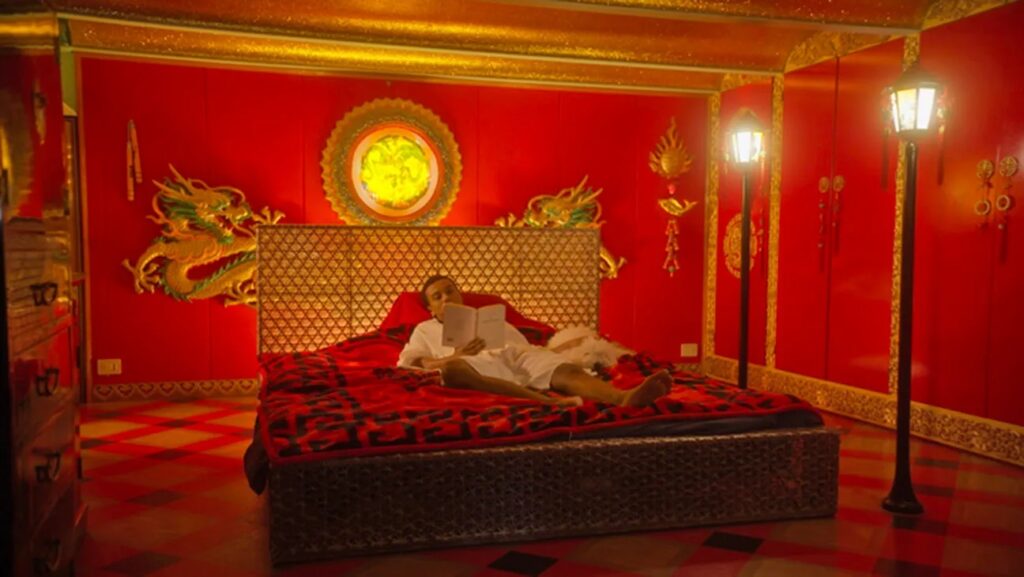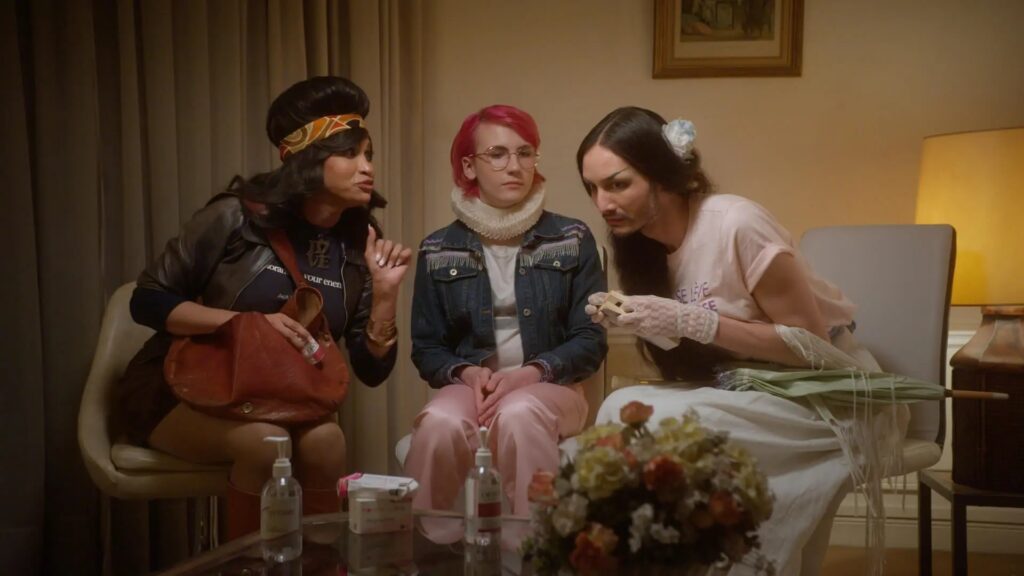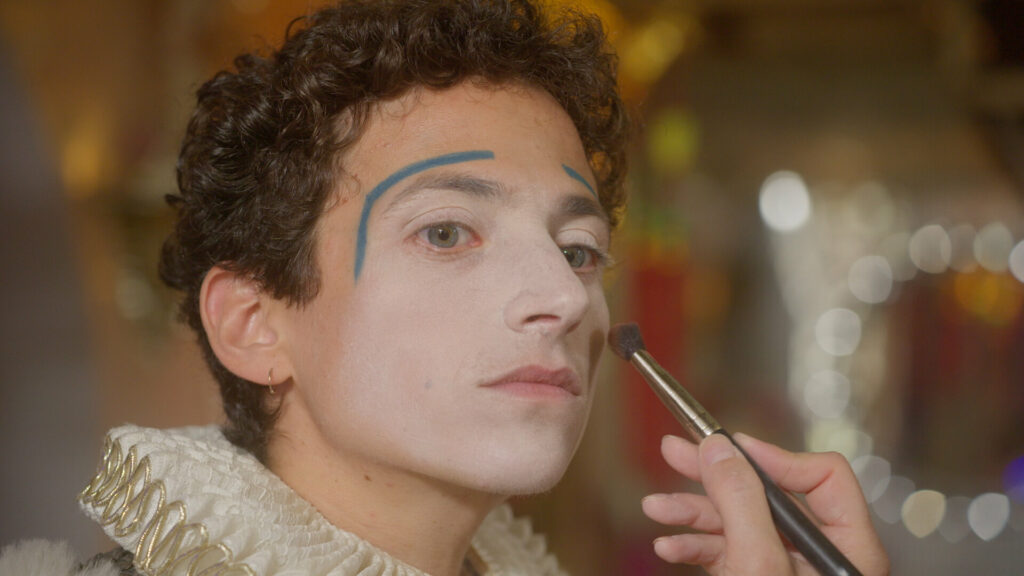“Orlando had become a woman […] though it altered their future, [it] did nothing whatever to alter their identity… but in future we must, for convention’s sake, say ‘her’ for ‘his’ and ‘she’ for ‘he’.” So reads a famous passage from Virginia Woolf’s Orlando: A Biography, one of the English novelists most well-known novels and which itself was made into a film starring Tilda Swinton in 1992. The titular Orlando one day wakes up as a woman instead of a man, going on to live for centuries, and his story is inspired at least in part by the family history of Woolf’s lover, Vita Sackville-West. Almost 100 after the novel’s publication, director, author, and trans activist Paul B. Preciado dedicates his film to understanding how Orlando’s story resonates with, and continues to be understood through, the contemporary experience of transgender and non-binary people. Orlando: My Political Biography is a stylised, artful documentary that uses Woolf as a stepping stone to talk about gender identity and transitioning.

While the film does not shy away from the harsh social and institutional barriers faced by the trans community, My Political Biography is mostly a celebration. Particularly in early scenes, Preciado’s presentation is wistful and dreamlike, expressing how gender transitioning has allowed his interviewees to emerge as their full selves. Each interviewee, with one or two exceptions, introduces themselves as if they will be playing the role of Orlando, before it is explored how the story holds significance for them in different ways. Some sections of the novel are played out in more modern day settings with stand-in characters, while other scenes break from a discussion of the novel almost entirely. The form can be a little convoluted at times, but the testimonies are captivating.

Preciado seems interested in ensuring his film is not limited to the medium of either film or the written word. To that end, there is seamless slippage between passage recital and first-person accounts from the participants. At times the camera will move or zoom back to expose the filmmaking apparatus behind those on screen. The unavoidable impression is that the story and its meaning to those reading it cannot be contained in any one mode of presentation, bursting out as it is beyond cinematic boundaries and into the real world. It is an experimental, creative and bold way of showing, rather than telling, the audience that there are very real ramifications at stake.
Preciado takes care not to suggest Orlando is in any way a universal representation or a ‘how to’ guide for the trans experience, but instead of how such stories offer thoughtful (if flawed) baselines for solidifying this experience for the self and for communicating them to others. Blurring Woolf’s fiction and the interviewees’ reality also gives the transgender participants a liminal, shared space in which they can be emotionally and physically open with you. It lends itself to some of the most frank, moving moments in the documentary. Just occasionally the errant stylisation struggles to articulate the difference between finding yourself in an alternate world and stepping into it entirely, but even fleeting moments of confusion are handled with grace and contemplation.

Rich with both textual and visual detail, Orlando: My Political Biography is a meditative, frank, and tender film that recognises how important fiction can be for the expression of marginalised identities. By blurring the lines between Orlando and his interviewees, Preciado’s film almost resembles a fantasy in the way it elevates the voices and perspectives of the transgender and non-binary communities to fantastical heights. It depends on, feeds off, and exceeds its source of inspiration.
Orlando: My Political Biography releases in UK cinemas from July 5th, 2024.
